The dictionary defines capitalism as “an economic system characterized by private or corporate ownership of capital goods, by investments that are determined by private decision, and by prices, production, and the distribution of goods that are determined mainly by competition in a free market.” While the Bible doesn’t mention capitalism by name, it does speak a great deal about economic issues. For example, whole sections of the book of Proverbs and many of the parables of Jesus deal with economic matters. As such, we learn what our attitude should be toward wealth and how a Christian should handle his finances. The Bible also provides us with a description of our human nature which helps us to evaluate the possible success of and failure of an economic system in society.
Because economics is an area where much of our everyday life takes place, we should evaluate it from a biblical perspective. When we use the Bible as our framework, we can begin to construct the model for a government and an economy that liberates human potential and limits human sinfulness. In Genesis 1:28, God says we are to subdue the earth and have dominion over it. One aspect of this is that humans can own property in which they can exercise their dominion. Since we have both volition and private property rights, we can assume that we should have the freedom to exchange these private property rights in a free market where goods and services can be exchanged.
However, due to the ravages of sin, many parts of the world have become places of decay and scarcity. And, though God has given us dominion over His creation, we must be good stewards of the resources at our disposal. Historically, the free enterprise system has provided the greatest amount of freedom and the most effective economic gains of any economic system ever devised. Even so, Christians often wonder if they can support capitalism. In essence, self-interest is rewarded in a free capitalist system. But even the gospel appeals to our self-interest, because it is in our self-interest to accept Jesus Christ as our savior so that our eternal destiny will be assured.
It’s happening again were in a big financial bubble and it’s going to pop guess who’s going to paym,the American public…
Imagine losing 9 billion dollars as Morgan Stanley did in one derivatives deal that went south and how many neighbor’s farms that would equal? We must recognize that Casino Capitalism is a profound gambling addiction with largely other people’s money, it is also theft and thereby criminal,and no one go’s to jail….
A Land for Billionaires
The consequences of several decades of Reaganism and its related ideas are now apparent. Wealth has been concentrated at the top with billionaires living extravagant lives that not even monarchs could have envisioned, while the middle class shrinks and struggles, with one everyman after another being shoved down into the lower classes and into poverty.
Millions of Americans forego needed medical care because they can’t afford health insurance; millions of young people, burdened by college loans, crowd back in with their parents; millions of trained workers settle for low-paying jobs; millions of families skip vacations and other simple pleasures of life.
Beyond the unfairness, there is the macro-economic problem which comes from massive income disparity. A healthy economy is one where the vast majority people can buy products, which can then be manufactured more cheaply, creating a positive cycle of profits and prosperity.
With Americans unable to afford the new car or the new refrigerator, American corporations see their domestic profit margins squeezed. So they are compensating for the struggling U.S. economy by expanding their businesses abroad in developing markets, but they also keep their profits there.
There are now economic studies that confirm what Americans have been sensing in their own lives, though the mainstream U.S. news media tends to attribute these trends to cultural changes, rather than political choices.
For instance, the Washington Post published a lengthy front-page article on June 19, describing the findings of researchers who gained access to economic data from the Internal Revenue Service which revealed which categories of taxpayers were making the high incomes.
To the surprise of some observers, the big bucks were not flowing primarily to athletes or actors or even stock market speculators. America’s new super-rich were mostly corporate chieftains.
As the Post’s Peter Whoriskey framed the story, U.S. business underwent a cultural transformation from the 1970s when chief executives believed more in sharing the wealth than they do today.
The article cites a U.S. dairy company CEO from the 1970s, Kenneth J. Douglas, who earned the equivalent of about $1 million a year. He lived comfortably but not ostentatiously. Douglas had an office on the second floor of a milk distribution center, and he turned down raises because he felt it would hurt morale at the plant, Whoriskey reported.
However, just a few decades later, Gregg L. Engles, the current CEO of the same company, Dean Foods, averages about 10 times what Douglas made. Engles works in a glittering high-rise office building in Dallas; owns a vacation estate in Vail, Colorado; belongs to four golf clubs; and travels in a $10 million corporate jet. He apparently has little concern about what his workers think.
“The evolution of executive grandeur – from very comfortable to jet-setting – reflects one of the primary reasons that the gap between those with the highest incomes and everyone else is widening,” Whoriskey reported.
“For years, statistics have depicted growing income disparity in the United States, and it has reached levels not seen since the Great Depression. In 2008, the last year for which data are available, for example, the top 0.1 percent of earners took in more than 10 percent of the personal income in the United States, including capital gains, and the top 1 percent took in more than 20 percent.
“But economists had little idea who these people were. How many were Wall Street financiers? Sports stars? Entrepreneurs? Economists could only speculate, and debates over what is fair stalled. Now a mounting body of economic research indicates that the rise in pay for company executives is a critical feature in the widening income gap.”
There is no end in sight because what I am suggesting to be the primary cause, unbridled greed allowed by Congress to be unbridled even when clearly unethical and often blatantly illegal, goes unabated and unrecognized as a pathology, worthy of being listed in the psychiatric manual, the DSM4.
But instead of seeing the behaviors of our banking industry, in conjunction with our government as psycho-pathological, as a society, so distorted is our relationship to money, we actually hold the biggest money-makers as heroes, even if they stepped on heads to get there, rendered millions of families homeless and literally were responsible for parents to not have food to feed their children to realize their financial gain.
It is not just the banking industry alone; this is a systemic illness that is across many sectors and is, unfortunately, quite contagious. It should also be said that there are many, many businesses and corporations who embrace socially- and eco-conscious values and stand in their own dignity and integrity, not associated with the pathological activities of other heads of corporations.
It apparently has to be stated in stark terms with a straight line drawn between the actions of the largest banks in our country and the homeless population now in America, since before, during and after the 2008 financial debacle and economic bubble burst, otherwise many people don’t really digest the causal relationship here.
The complexity of issues involved was well-articulated in the Academy Award-winning film Inside Job. This film made clear many of the ways different government agencies were stopped from pursuing criminal investigations into the banking industry, how Alan Greenspan chased the Commodities Exchange Futures Commission (CFTC) and the SEC away from regulating derivatives trading and how the FDR-initiated, Glass-Steagall Act, which served the American People for decades got repealed by the same kind of “Wall Street hustling” that dominated and continues to dominate our economy. It’s an inside job!
In sum, Inside Job, award-winning producer-journalist Danny Schechter’s films Plunder and In Debt We Trust, along with others and numerous books, outline just how the thefts have been engineered and the wool pulled over the American People’s eyes.
At base is that as a society we still lavish kudos, regale the Enrons of the world, which was proven to be a fraudulent firm, which put millions of dollars into a number of executive’s pockets by defrauding the American People. There is a psychological issue in the American psyche, that seems to worship money and power even beyond its own well-being, a form of hero-worship that is seeding the worshiper’s own destruction.
Due to a massive, mainstream education some time back about the serious, potentially life-threatening effects of smoking cigarettes, the idolatry and “coolness and sexiness” “cooled.” During this time, there was a societal shift of perception of what used to be a doctor-and-Hollywood-advocated ritual of “being hip.” No longer was it being perceived as such, and then even legislation changed locally and nationally regarding smoking in public, on transportation, etc.
Once the mainstream begins to perceive that the unadulterated greed engaged by so much of the Wall St. banking community is really a mental process that the brain reacts to similarly to cocaine, a similar shift could occur as it did with smoking, and the hero worship will diminish along with legislation, finally being drafted.Subscribe to The Morning Email.Wake up to the day’s most important news.
Imagine a gambler who is willing to lose the family house or farm, all for the opportunity to win a fortune. What is the difference between that and the derivatives market or credit default swaps with your client’s money? At least in the former, it’s your own farm; in the latter, it’s your neighbor’s. Can you imagine losing 9 billion dollars as Morgan Stanley did in one derivatives deal that went south and how many neighbor’s farms that would equal? We must recognize that Casino Capitalism is a profound gambling addiction with largely other people’s money, it is also theft and thereby criminal.
As a psychotherapist, I suggest that, We the People, take a good, long look at how we hold in mind money and the largest makers of money because our conscious and subconscious view is leading to our undoing. I suggest that while money is clearly a form of neutral energy that fuels our economy, it has become an idol, in direct opposition to fundamental principles of our society. Moses may have done a service to us thousands of years ago the value of which we have not fully recognized.
I suggest that making money, while a perfectly fine, valuable and necessary activity to engage, can be done in an ethical way that does not jeopardize people or harm our environment. It does not have to be executed excessively to the extent that greed is engaged. This post is not saying that making money is a problem in itself — it is saying however, that how we make money needs to be carefully scrutinized for the consequences of the way of the making.
From engaging in massive deal-making, through neuroscience, we know that parts of the brain are engaged that are similar to the effect of cocaine.
In short, I’m suggesting that greed, which is the pursuit and acquisition of money at any expense, is a pathological activity, is actually an addiction, and should be societally regarded as such. When it harms others or the environment, it is also a form of criminal insanity and should be treated legally and psychologically as such.
It is currently ruining our society, the lack of leadership in the White House and Congress continues to condone the unethical and often illegal but unprosecuted acts, and as a result, our government and elected officials are complicit in these ongoing acts which were not stopped when our economy was crippled — again — in September 2008. Glass-Steagall, the strongest piece of legislation to criminalize the combining of different banking activities, was not reinstated, and the political will to do so is faint.
When we as a People, recognize that we are giving energy to the addicted criminals because of the high regard in which we collectively view the wealthy, as somehow beyond reproach, then we will start to see more legislation to criminalize these activities, to reinstate Glass-Steagall and to treat the pathology of greed as an addiction, fundamentally based on a profound fear ‘of Not Enough’ as well as “I’m not good enough”, the deep wound of the greedy, miser-Midas archetype, that dominates their psyche.
At base, the unbridled acquisition of money at any expense should be recognized as form of violence It is not seen as such because of ‘who’ it is that is doing it who are considered, as said, to be “icons” of our society, but this is simply not so. It is up to us to change this old, Hollywood-like, long-outdated attitude and curiously perverse perspective. These people are significantly contributing to destroying our economy, our People and our planet. It must be seen for what it is.
I suggest we reevaluate this according to an understanding of the actions from the points of view of history, psychology and archetype so to transform our perspective, which can then lead to a transformation of the illness and our economic well-being and future.
(LONDON (Reuters) – – A banking culture that implicitly puts financial gain above all else fuels greed and dishonesty and makes bankers more likely to cheat, according to the findings of a scientific study.
Researchers in Switzerland studied bank workers and other professionals in experiments in which they won more money if they cheated, and found that bankers were more dishonest when they were made particularly aware of their professional role.
When bank employees were primed to think less about their profession and more about normal life, however, they were less inclined to dishonesty.
“Many scandals… have plagued the financial industry in the last decade,” Ernst Fehr, a researcher at the University of Zurich who co-led the study, told reporters in a telephone briefing. “These scandals raise the question whether the business culture in the banking industry is favoring, or at least tolerating, fraudulent or unethical behaviors.”
Fehr’s team conducted a laboratory game with bankers, then repeated it with other types of workers as comparisons.
The first study involved 128 employees all levels of a large international bank – the researchers were sworn to secrecy about which one – and 80 staff from a range of other banks.
Participants were divided into a treatment group that answered questions about their profession, such as “what is your function at this bank;” or a control group that answered questions unrelated to work, such as “how many hours of TV do you watch each week?”
They were then asked to toss a coin 10 times, unobserved, and report the results. For each toss they knew whether heads or tails would yield a $20 reward. They were told they could keep their winnings if they were more than or equal to those of a randomly selected subject from a pilot study.
Given maximum winnings of $200, there was “a considerable incentive to cheat,” Fehr’s team wrote in the journal Nature, online November 19.
The results showed the control group reported 51.6% winning tosses and the treatment group – whose banking identity had been emphasized to them – reported 58.2% as wins, giving a misrepresentation rate of 16%. The proportion of subjects cheating was 26%.
The same experiments with employees in other sectors – including manufacturing, telecoms and pharmaceuticals – showed they don’t become more dishonest when their professional identity or banking-related information is emphasized.
The Economy is in a Meltdown
The world’s monetary system is being deliberately destroyed. Consequently, the economic signals that guide the markets – which in a free market are supposed to represent the supply and demand decisions of billions of people – have up to now all been totally false. Despite frequent denials by Central Banks and most mainstream economists, these distortions in the markets are the result of intentional manipulations of currency and precious metal values around the world by central bankers, crafted in response to the demand for competing export opportunities, easy money and cheaper credit by governments. The world is indoctrinated to believe that paper money – the symbol of wealth is that can deliver all the benefits of the free market, while gold is a barbarous, useless metal. This, of course, isn’t true.
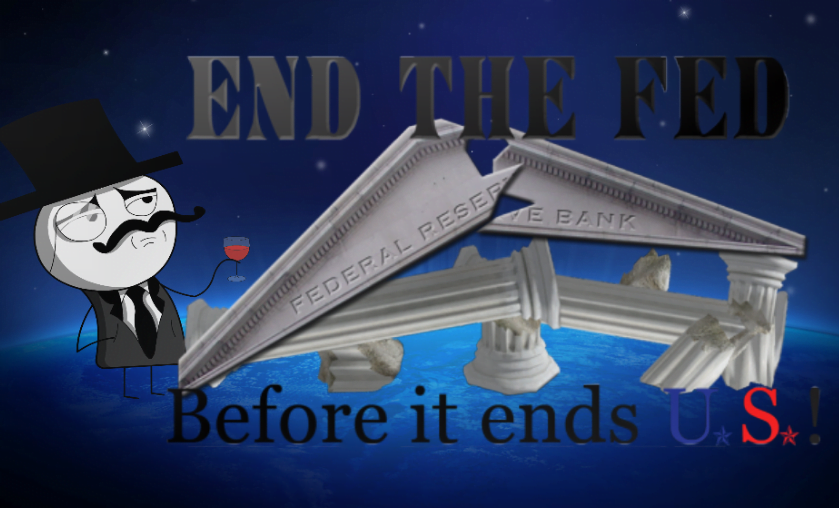
Though greed is sometimes evident in the capitalist system, we have to understand it’s not because of the system—it’s because greed is part of man’s sinful nature. The solution lies not in changing the economic system but in changing the heart of man through the power of the gospel of Jesus Christ.
StevieRay Hansen
Editor, Bankster Crime
MY MISSION IS NOT TO CONVINCE YOU, ONLY TO INFORM…
![]()
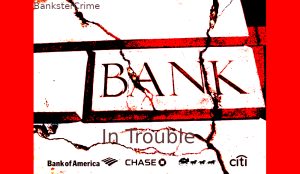

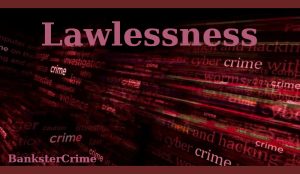
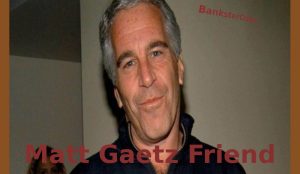
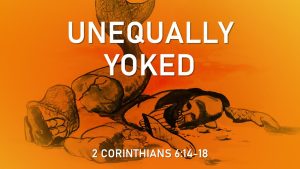
Excellent Excellent post. Glass Steagel was sold to us as outdated under Slick Willie, and very few consider these effects.
Excellent, thank you. God says thank you, too.
What does it mean,” your comment is awaiting moderation?”